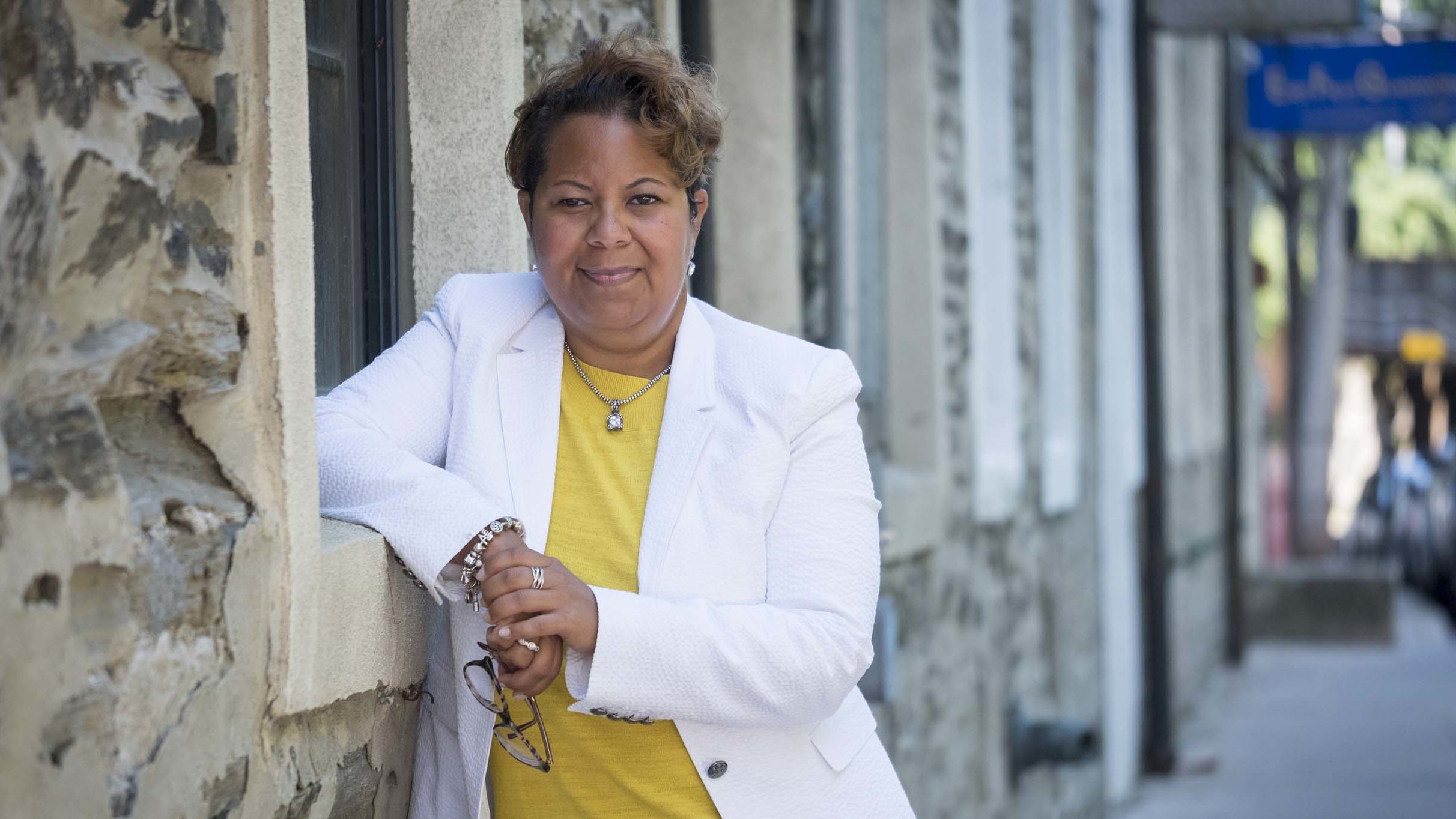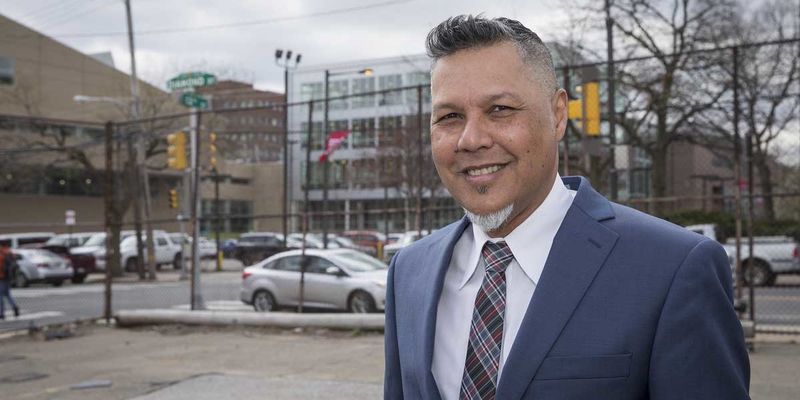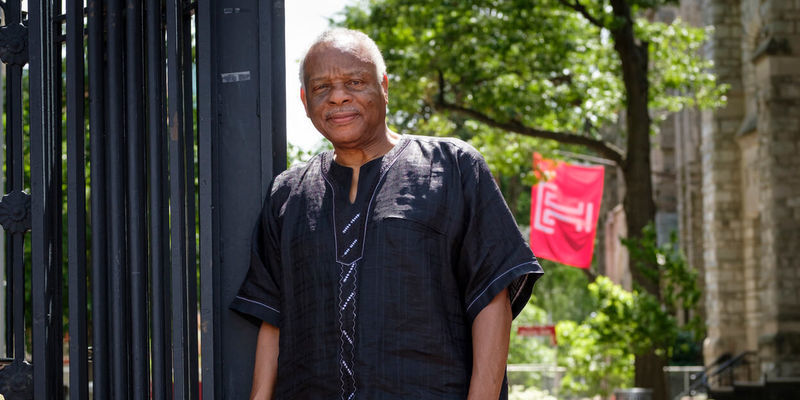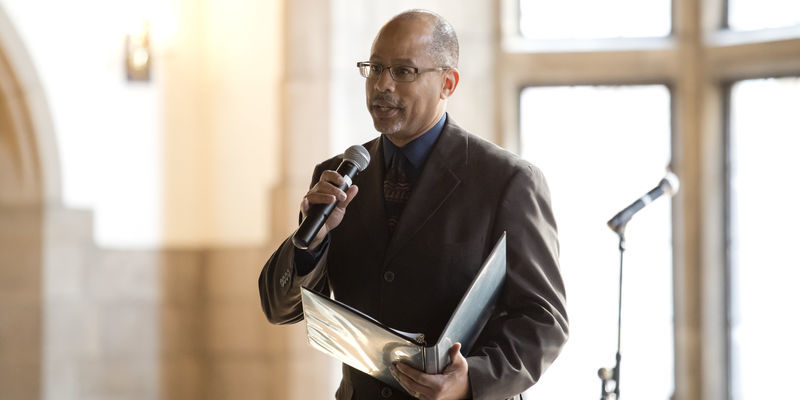National protests emphasize need for criminal justice reform
Tara Tripp, assistant professor in the College of Liberal Arts, discusses reentry programs and the revolving door of the prison system.

For Tara Tripp, the national protests following the death of George Floyd underscore the need for dramatic changes to our criminal justice system.
“You can’t be here in 2020 and not be concerned with issues of criminal justice and reform,” said Tripp, who is an assistant professor in the College of Liberal Arts’ Department of Criminal Justice.
Tripp began her career working in the Philadelphia Family Court - Juvenile Division, where she saw firsthand “what can happen when our education system breaks down and kids are left behind to fend for themselves.” Seven years later, she became an adult probation officer, where those flaws in the system came into deeper focus.
“The majority of my clients were predominantly African American males, young,” Tripp said. “The resources were slim and jobs were not plentiful. I began to see a system of a revolving door. You got an arrest at 14, and I’m meeting you when you’re 22, and it’s been a steady flow for you in and out of that revolving door” ever since.
Now, Tripp teaches Introduction to Criminal Justice, Nature of Crime, Community Corrections & Rehabilitation of the Offender, among other courses at Temple. She also teaches an Inside-Out course at Riverside Correctional Facility, which brings together Temple students and incarcerated students for semester-long learning.
Through her work in Inside-Out, Tripp has met many “astounding women who could have been me, or my sister, or my mom. Somewhere, something went wrong for them.”
Temple Now: You’re teaching summer classes right now. Are you having any unique discussions around what’s been happening in this country?
Tara Tripp: There’s concern and it’s genuine. I had one young person who was out protesting and was proud of it, and I was proud of her for doing it. She was very empowered and I was very excited—but she was one of 12. And that kind of upset me a little bit. When I brought it up to my students, I was like, “Hey, let’s talk about what we just watched on the news. Let’s really get into it.” And I just got a lot of, “I hear you, Ms. Tripp, and I’m with you, but what can we do?”
Temple Now: What is your response to questions like “What can we do?”
TT: The one thing I push is the power of the voice that you have in terms of the power of the ballot. A lot of young folks have checked out from voting and from the political process. So I try to encourage people to vote. I mean, it seems like such a small thing, but it’s ginormous when you consider the power that that electorate has—and you saw that in 2016.
When students ask me “what can we do?” the first thing I say is: educate ourselves. Educate ourselves on who we are giving authority to make decisions for us. Don’t be dependent on the media to educate us.
Temple Now: What resources do you suggest?
TT: I tell students, when you are not trusting the media then you should not be as trusting of each other. Everybody has a lens that they’re going to provide you with. I often tell them, if you’re interested in a candidate, go right to them. Google their name and see what pieces of legislation they have signed and they have put forth. You begin to learn a lot about people who are running for office when you look at the legislation that they propose. If you can’t do that, look at the legislation in your county. Who was it signed by? Who presented it to the House? How did it get passed? I usually just tell them to go directly to the source, to the person.
Temple Now: Concepts like social justice and criminal justice reform are complex. Is there any facet that aligns with your interests or work?
TT: I’m really passionate about reentry. I’m teaching a reentry class in the second summer session, Rehabilitation of the Offender. I’ve been waiting to get my hands on it.
Temple Now: What is reentry?
TT: Reentry is when a person is released from a period of incarceration—whether that be on the federal/state or municipal level—back into the community. And reentry is important because you’re trying to help someone maneuver back into civil society, out of being incarcerated.
Oftentimes, in areas like Philadelphia and Baltimore where you also see large police presences and large probation and parole populations, you see lack of resources and you see (again) this revolving door. You want to stop the revolving door and address why the person was incarcerated in the first place and how to better meet their needs coming out.
That process has to start going in, not exiting.
Temple Now: Do you have a sense of tangible ways that can be achieved?
TT: I can speak to two examples. Several years ago, Philadelphia created the Mayor’s Office of Reentry—now the Mayor’s Office of Reintegrative Services. It was put together to address the needs of folks coming home from Philadelphia jails, trying to put them in touch with resources in their community. Because if you live in West Philadelphia why should you be sent to Southwest Philly for treatment, services and job training? I need it right where I live. It’s a resource center, and it’s changed over the course of the last 10 years or so in that money is not always available; the first things that we cut when we need to find money are education and reentry resources. You can see that in Philadelphia we have a really low graduation rate. We have a really poorly funded school district, and you can almost pinpoint areas where schools are under performing along with rising incarceration rates, and increasing social problems such as poverty and unemployment.
On the federal level, they have a Federal Reentry Court (STAR Program) that they offer to returning citizens that are going through the reentry process, where they help them with housing, with jobs, with getting a car, with getting a loan, just with basic living. A lot of folks are lacking that support. Every two weeks, these individuals appear before a federal magistrate judge to report on their progress. For the folks in this program, when they go to reentry court, the judge knows them and can refer to them by their first name—they’re not just a number. It makes a person feel wanted and needed.
Temple Now: You touched on the need to put funding in the right places, which brings to mind recent calls to defund or abolish the police. Do you have any opinions on that movement or what it might entail?
TT: I’m going to be quite honest with you. When I see terms like “defund police” or “abolish police,” it drives me bonkers, because in the reality of the world in which we live, until you can provide us with an alternative to law enforcement, who are you going to call? When we talk about defunding the police, I’m all for circumventing those funds and putting them into education. I’m all for taking those funds and putting them into communities where you need to help folks. But if we’re talking about eliminating the police, what are we going to be left with? I think we saw two weeks ago [during the initial protests following the death of George Floyd] what happens when the police are not able to aid a community. This is from someone who watched and saw what Philadelphia looked like after two nights of looting and looking at police officers who were depleted. Don’t get me wrong, we have a systemic problem with law enforcement, but I do believe that there are enough cops that wanted to prevent what was happening because this is their community, too.
Temple Now: Will recent events impact your approach to lesson plans?
TT: I’ve thought about that a great deal. It doesn’t take something like that for me to talk about race. You can’t have any of these conversations without talking about the intersection of race, class, gender and crime. It is imperative on my part as the professor in the room to create a space in which students can feel comfortable to speak their minds and not feel that they will be shunned or looked down upon. I let my students know from day one, I'm going to keep it real with you and you keep it real with me.
I think it’s vitally important for all educators to open the exchange and let the students have their say. Because there’s going to be a whole bunch of them coming in the fall that were out here protesting, and they are going to be very passionate about what they saw and what they experienced. My fear is that it’s going to die out, that the momentum is going to die out, and I just pray that we can keep it going toward November.


